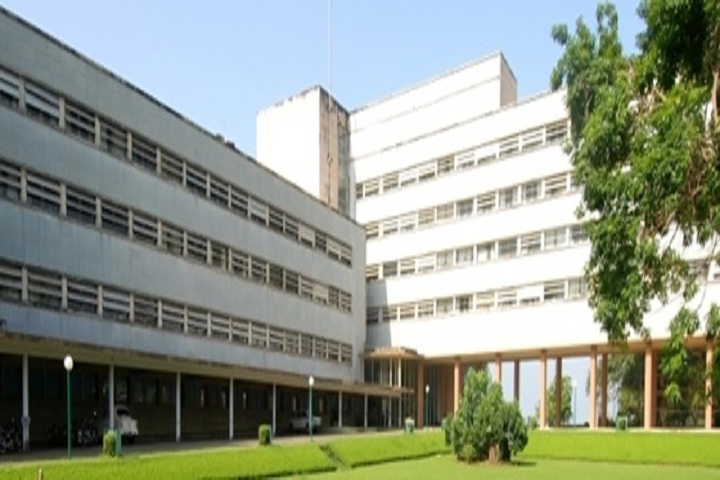What is Astronomy
Astronomy is a scientific course that deals with the study of the physical universe. Astronomy is the study of everything beyond the earth’s atmosphere such as the moon, sun, planets, stars, and much more in detail. A candidate pursuing an astronomy course is required to understand the basic principles of physics and mathematics since the course is based on the application of these subjects.
A candidate gets a chance to pursue astronomy courses after class 12th. Aspiring candidates can pursue undergraduate and postgraduate degrees, diplomas, and even certificate courses. There are very popular universities and colleges like the Indian Institute of Science, Bangalore that provide astronomy degree courses. Candidates must fulfil the eligibility criteria to start with their applications.
Post-completion of astronomy courses, candidates can pursue roles of Astrophysicist, Observational Astronomer, Astrogeologist, Astrochemist, Space Scientist, and Instrumentation Scientist. The top recruiters for these profiles in India are ISRO, Indian Institute of Astrophysics (IIA), Inter-University Centre for Astronomy and Astrophysics (IUCAA), National Centre for Radio Astrophysics (NCRA) and Tata Institute of Fundamental Research (TIFR).
Highlights: Astronomy Course
Particulars | Values |
Branch Name | Astronomy |
Degrees | Certificate Course Doctoral: PhD |
Eligibility Criteria | Certificate Course: Pass 10+2 examinations from a recognised education board UG: Pass 10+2 examinations in the science stream from a recognised education board. PG: Bachelor's degree in Astronomy or similar discipline PhD: Master's degree in Astronomy or a similar discipline |
Admission Process | Entrance Exams |
Entrance Exam | CUET UG, CUET PG, JEST, IISER Aptitude Test, JNUEE |
Course Fees | Rs. 20,000 to Rs. 1.5 Lakhs |
Job profiles | Astrophysicist, Observational Astronomer, Theoretical Astronomer, Astrobiologist, Astrogeologist, Astrochemist, Space Scientist and Instrumentation Scientist |
Average Salary | Rs. 8.5 LPA |
Recruiting Companies | ISRO, Indian Institute of Astrophysics (IIA), Inter-University Centre for Astronomy and Astrophysics (IUCAA), National Centre for Radio Astrophysics (NCRA), Tata Institute of Fundamental Research (TIFR), Physical Research Laboratory (PRL), BARC, Aryabhatta Research Institute of Observational Sciences (ARIES), Raman Research Institute (RRI) and Udaipur Solar Observatory |
Specialisation or Similar Ones
Astronomy is a very broad field of science. There are many specialisations in astronomy like astrophysics, astrochemistry, astrobiology, and astrogeology. These fields require strong foundations in physics, mathematics, and skills to analyse data and develop theoretical models. Below are some of the related degrees similar to astronomy.
B.Sc. in Astrophysics | M.Sc. in Astrophysics |
Integrated M.Sc.-Ph.D. in Astrophysics | M.Sc Astronomy and Space Physics |
M.Sc and Ph.D Astronomy and Astrophysics Integrated | M.Tech Ph.D Astronomical Instrumentation |
Top Astronomy Colleges in India
There are many colleges and universities in India that offer astronomy courses and degrees. These colleges and universities are known for their comprehensive coursework and expertised facilities. Below is the list of top colleges in India that offer astronomy courses.
Colleges | Average Fees |
- | |
- | |
Rs. 4,520 | |
- | |
Rs. 29,200 | |
Rs. 1.29 Lakhs | |
Rs. 62,414 | |
Nainital Indian Institute of Astrophysics | - |
Rs. 34,700 | |
- |
Note: The fee structure provided above can be for any particular Astronomy course (Certificate/Diploma/ Degree/PGD).
Eligibility Criteria (UG & PG) of Astronomy
Astronomy Certificate Courses Eligibility Criteria
There are some eligibility criteria set by the institutions that candidates need to check before applying to the certificate courses in astronomy. These eligibility criteria are to be followed by candidates to successfully start the admission process of forensic science certificate courses.
Candidates should have successfully passed class 12 with a minimum of 50 per cent marks in any stream.
Astronomy UG Courses Eligibility Criteria
Candidates who aspire to pursue undergraduate degrees in astronomy have to follow certain eligibility criteria. These eligibility requirements are set by the institutions and colleges that offer BSc Astronomy and other undergraduate degrees. Below are the eligibility criteria for undergraduate courses in astronomy.
- Candidates must complete their 10+2 education in the science stream with Subjects of maths and physics.
- Candidates must score a minimum of 50 per cent marks in their class 12th examinations.
Top UG Entrance Exam for Astronomy
There are some institutions and colleges offering astronomy degree courses that require candidates to sit for the entrance exams. The candidates need to successfully qualify for the examination to sit for the counselling sessions. Below are the details of some of the entrance exams required by the candidates:
Exam Name | Level | Conducting Body | Exam Schedule |
National Level | NTA | ||
National Level | IISER | - | |
JNUEE | University Level | JNUi | - |
Astronomy PG Courses Eligibility Criteria
Similarly, for PG courses also, the institutes and colleges have certain entrance requirements. The candidates need to ensure that they are eligible for the astronomy course before they start with the application process. Below are certain entrance requirements for astronomy courses.
- Candidates must have completed a bachelor’s degree in science (physics, mathematics, astrophysics, or astronomy).
- Candidates must score a minimum of 55 per cent marks and above in a bachelor’s degree.
Top PG Entrance Exam for Astronomy
Similarly, the universities and colleges offering PG courses in Astronomy also require candidates to qualify for a certain entrance examination. These entrance exams like CUET PG and JEST are computer-based exams. Below are the details of some of the entrance exams required by the candidates:
Exam Name | Level | Conducting Body | Exam Schedule |
National | NTA | ||
National | Indian Institute of Science Bangalore | ||
JEST | National | Science & Engineering Research Board (SERB) | - |
Scope of Astronomy in India and Abroad
The scope of Astronomy in India and abroad is very wide and bright. Huge reputed organisations like ISRO, IIA, and IUCAA provide roles in research, development, and space missions. Candidates after doing Astronomy courses can work as astrophysicists, observatory scientists, or instrumentation experts. The field also offers opportunities in data analysis, computational modelling, and aerospace industries.
Course Fees Astronomy
| Minimum Fees | Maximum Fees | |||
|---|---|---|---|---|
| Private | Government | Private | Government | |
| PG | ||||
| DOCTORAL | ||||
Course Subjects
The coursework for astronomy courses is a blend of theory and practical subjects. The syllabus for undergraduate and postgraduate courses is different. Students pursuing undergraduate-level courses will learn all the basic topics of astronomy. Similarly, the students pursuing postgraduate courses will learn similar subjects at the advanced level.
Astronomy UG Course
The syllabus for astronomy courses at undergraduate level has more theoretical focus. The undergraduate coursework is comprehensive and includes subjects like Thermal Physics, Analog Systems and Applications and Atomic and Molecular Physics. Below is the syllabus for BSc Physics in Astronomy And Astrophysics offered by UPES. The duration is four years and the syllabus is divided into eight semesters.
Semester 1 | |
Mathematical Physics I | Mechanics |
Minor – I | Environment Sustainability & Climate Change |
Critical Thinking | Computational Techniques |
Semester 2 | |
Electricity and Magnetism | Thermal Physics |
Mathematical Physics II | Minor - II |
Environment Sustainability & Climate Change | Living Conversations |
Constitution and Indian Polity | - |
Semester 3 | |
Waves and Optics | Analog Systems and Applications |
Elements of Modern Physics | Skill Enhancement Course I (Elective) |
Minor -III | Design Thinking |
Social Internship | - |
Semester 4 | |
Mathematical Physics | Solid State Physics |
Digital System and Application | Skill Enhancement Course II (Elective) |
Minor -IV | Working with Data |
Semester 5 | |
Quantum Mechanics and Application | Atomic and Molecular Physics |
Minor -V | Leadership & Teamwork |
Technologies of Future/Meta | Summer Internship |
Scientific Communication | |
Semester 6 | |
Electromagnetic Theory | Statistical Mechanics |
Nuclear and Particle Physics | Minor -VI |
Start your own Start-up | - |
Semester 7 | |
Classical Mechanics | Elective I |
Elective II | Minor -VII |
Research Methodology & Ethics | - |
Semester 8 | |
Dissertation | Elective III |
Condensed Matter Physics | Advanced Quantum Mechanics |
Minor -VIII | - |
Astronomy PG Course
The syllabus of postgraduate courses in astronomy is also a blend of theoretical and practical subjects. The major emphasis of the postgraduate course in astronomy is on practical education and hands-on experience. The syllabus for MSc Astronomy is divided into four semesters. Below is the syllabus for MS Astronomy and Astrophysics offered by the IIST Thiruvananthapuram.
Semester 1 | |
Introduction to Astronomy and Astrophysics | Astronomical Techniques |
Radiation Processes in Astrophysics | Computational Astrophysics |
Planetary Sciences | Data Analysis Astronomy Lab |
Semester 2 | |
Structure and Evolution of Stars | Galaxies (Structure, Dynamics and Evolution) |
Cosmology | Elective |
Seminar | Observational Astronomy Lab |
Comprehensive viva | - |
Semester 3 | |
Self-study elective with seminar | Thesis Phase I |
Semester 4 | |
Thesis Phase II | - |
Careers in Astronomy
The astronomy courses and degrees open a wide door of career opportunities for the students. Students get to pursue roles of Research Scientist, Astronomer, Observational Astronomer, Theoretical Astronomer, Space Scientist and Instrumentation Scientist. Below are the descriptions of some important career profiles available for astronomy students.
Job Profile | Job Description |
A Research Scientist is responsible for designing, undertaking and analysing information from laboratory-based experiments and investigations. He or She develops models to understand the universe. | |
An Astronomer prepares and assesses scientific theories and research proposals. He or She also explores the ever-expanding space from a position of standstill due to the issue of light reaching us. | |
Space Scientist | A Space Scientist prepares presentations and observation papers recorded during the research process.He or She also analyses data from satellites and telescopes and contributes to advancements in astrophysics and planetary science. |
Astrophysicist | An Astrophysicist watches space, utilising telescopes and analyse outer space and observe the atmosphere. He or She uses theoretical models and observational data to understand the universe's origins, structure, and evolution. |
Observational Astronomers | Observational astronomer is responsible for developing and testing scientific theories. He or She also analyses data and makes research proposals. |
Upcoming trends
The upcoming trends in astronomy degrees emphasise advanced technologies and more hands-on learning. There has been an expansion in the use of artificial intelligence and machine learning to analyse space data. There has also been an increasing interest in astrobiology, which studies the possibility of life beyond Earth.
Job Profiles and Top Recruiters
Candidates after doing astronomy degrees get to work in many reputed companies. In the reputed companies mentioned below, candidates can get to work as Astrophysicists, Observational Astronomers, Theoretical Astronomers, Astrobiologists, Astrogeologists, Astrochemists, Space Scientists, and Instrumentation Scientists.
Top Recruiters:
- NASA
- ISRO
- Tata Institute of Fundamental Research (TIFR)
- National Centre for Radio Astrophysics (NCRA)
- Bhabha Atomic Research Centre
- National Observatory Astronomy
- Indian Institute of Astrophysics (IIA)
- Physical Research Laboratory (PRL)
- Aryabhatta Research Institute of Observational Sciences (ARIES)
- Raman Research Institute (RRI)
Average Salary
The salary depends on the job profile, location of the company, experience, and skills of the candidates. Mentioned in the table below are the salaries of some popular career options in astronomy.
Job Profile | Average Annual Salary |
Astronomer | Rs. 8.5 LPA |
Space Scientist | Rs. 19.1 LPA |
Research Analyst | Rs. 4.9 LPA |
Astrophysicist | Rs. 7.07 LPA |
Source: Ambition Box and Glassdoor
The salary figures mentioned anywhere in these articles are just for reference purposes. Please treat them as such. Actual salaries may vary depending on respective candidates, employer, job location, and numerous other factors.
Required Skillset for Astronomy
The study of astronomy requires a lot of skills and expertise in the field-related aspects. The ability to solve complex problems, conduct research, analyse data, maths, physics and knowledge in basic science-related subjects are the most important skill sets of an individual.
Skills Required:
- Mathematical Skills
- Physics Knowledge
- Computer Programming
- Data Analysis
- Critical Thinking
- Problem-Solving
- Research Skills
- Attention to Detail
- Communication Skills
Course Curriculum for Astronomy
The course curriculum for Astronomy includes a range of subjects that cover the study of celestial objects and phenomena. Students learn fundamental physics concepts, such as mechanics and electromagnetism, to apply to celestial bodies and processes. Mathematics, particularly algebra, and calculus, is also crucial for data analysis and modelling.
Popular Astronomy Entrance Exams in India
Frequently Asked Questions (FAQs)
Question: What is the career scope of a degree in astronomy?
Answer :
Astronomy offers a limited scope since the recruitments are based on highly skilled individuals in the subject matter. However, one can work in the fields of astronomy as an astronomer, research analyst, observation astronomer, and much more.
Question: Are astrophysics and astronomy the same?
Answer :
Astrophysics and astronomy are quite similar to each other, and one can pursue astronomy with astrophysics as a subject.
Question: Will I get job opportunities in NASA or ISRO with an astronomy degree?
Answer :
If an individual pursuing a degree in astronomy has relevant skills and expertise in the course, he or she may have a chance to get employed at NASA or ISRO. However, it depends on the individual’s skills and dedication to the subject since they are prestigious companies.
Question: What is the eligibility criteria for Astronomy courses?
Answer :
One needs to take science during their 10+2 to pursue an astronomy course in further studies. For an undergraduate in astronomy and a master's and PhD in astronomy, one needs to have a degree in science stream in Subjects of maths, physics astrophysics, or astronomy.
Question: What is the study of astronomy?
Answer :
Astronomy is the in-depth scientific study and understanding of the universe beyond the earth and the existing celestial bodies or objects.



.jpg)

























